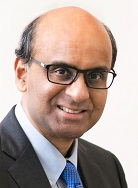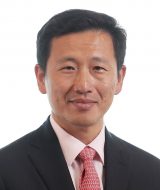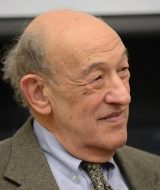
- 15 Jan 2020
The Middle East in Transformation: Are there Lessons from East Asia?
MIDDLE EAST INSTITUTE 2020 ANNUAL CONFERENCE
About the Conference
East Asia has been remarkably successful in transforming its economies. Starting with Japan in the Meiji era, to its recovery from World War II, and continuing with the emergence of the “Asian Tigers” — Singapore, South Korea, Taiwan and Hong Kong — in the 1980s to China and Asean in the 1990s, the East Asian development model has spawned stunning growth. How have East Asian countries adapted to changing conditions to deliver such growth?
As countries in the Middle East undertake economic transformation, does East Asia hold lessons for them? Can they replicate the human capital development, state-sponsored capitalism and other pillars of the East Asian model? Should they? How will transformation affect politics and society?
Can geopolitical developments also impact the transformation of a country? How have countries in East Asia managed these external factors?
Keynote speakers include:
Mr Tharman Shanmugaratnam, Senior Minister and Coordinating Minister for Social Policies, Singapore;
Mr Ong Ye Kung, Minister of Education, Singapore;
HE Sayyid Badr bin Hamad bin Hamood Albusaidi, Secretary-General, Oman Ministry of Foreign Affairs; and
Professor Ezra F Vogel, Henry Ford II Professor of Social Sciences Emeritus, Harvard University.
Join us at this two-day conference event to hear from these keynote speakers and more.
Please click HERE for the latest programme and see the Photo Gallery for photos of the event.
Please click HERE to download a copy of the Conference Proceedings.
Speech by Guest of Honour Mr Tharman Shanmugaratnam, Senior Minister and Coordinating Minister for Social Policies of Singapore
Find the podcast of his speech here.
First Keynote Speech by HE Nabil Fahmy, former Egyptian Foreign Minister
Fourth Keynote Speech by HE Dr Ahmad Belhoul Al Falasi, Minister of State for Higher Education and Advanced Skills, United Arab Emirates
Tune in to his speech on podcast.
Media Coverage
CNA
Singapore keen to collaborate with the Middle East, take part in its transformation efforts: Tharman
Lianhe Zaobao
Phoenix TV
South China Morning Post
Look to Japan and China: can the Middle East learn from East Asia’s success story?
The Straits Times
Developing regions in Middle East, East Asia significantly underperforming: Tharman
About the Speakers

Senior Minister and Coordinating Minister for Social Policies,
Singapore
Mr Ong Ye Kung,
Minister of Education,
Singapore
HE Sayyid Badr bin Hamad
bin Hamood Albusaidi,
Secretary-General,
Oman Ministry of Foreign Affairs
Professor Ezra F Vogel,
Henry Ford II Professor,
Social Sciences Emeritus,
Harvard University
Mr Tharman Shanmugaratnam was appointed senior minister on 1 May 2019. Since 2015, he has taken on the role as coordinating minister for social policies, and advises the prime minister on economic policies. Between 2011 and 2019, he served as deputy prime minister.
Prior to that, he was finance minister for eight years (from 2007) and education minister for five years (from 2003). Since 2011, he has been appointed chairman of the Monetary Authority of Singapore, Singapore’s central bank and financial regulator. In addition to his responsibilities in the government, Mr Shanmugaratnam is deputy chairman of GIC and chairs its Investment Strategies Committee.
Mr Shanmugaratnam currently also chairs the Economic Development Board’s International Advisory Council, and the International Academic Advisory Panel that advises the government on strategies for the university sector.
Outside Singapore, he chairs the Group of Thirty, an independent global council of economic and financial leaders. He also chaired the G20 Eminent Persons Group on Global Financial Governance, which in October 2018 proposed reforms for a more effective system of global development finance and for financial stability.
Prior to that, he led the International Monetary and Financial Committee (IMFC), the key policy forum of the International Monetary Fund, for four years from 2011, as its first Asian chair. He currently co-chairs the Advisory Board for the United Nations’ 2019 Human Development Report, and serves on the World Economic Forum’s Board of Trustees.
Mr Shanmugaratnam is a graduate of the London School of Economics and Political Science, and Cambridge University. He obtained a master’s degree in public administration at Harvard University, where he was named a Lucius N Littauer Fellow.

Mr Ong Ye Kung is Singapore’s minister for education. He is concurrently a board member of the Monetary Authority of Singapore and chairman of the Chinese Development Assistance Council.
He was elected a member of parliament for Sembawang Group Representation Constituency in September 2015, and appointed to the Cabinet of Singapore on 1 October 2015. Before his current appointment, he served as minister for education (higher education and skills) and second minister for defence.
Prior to his Cabinet appointment, he was director of group strategy at Keppel Corporation, where he oversaw long term strategic planning of the group’s activities.
Between 2003 and 2005, he was principal private secretary to Prime Minister Lee Hsien Loong, and from 1997 to 2003, he was Mr Lee’s press secretary. Mr Ong was also the deputy chief negotiator for the US–Singapore Free Trade Agreement.
Mr Ong graduated from the London School of Economics and Political Science (UK) with a first class honours in economics, and holds an MBA from the Institute of Management Development, Lausanne, Switzerland.

Professor Ezra F Vogel is the Henry Ford II Professor of the Social Sciences Emeritus at Harvard University. After graduating from Ohio Wesleyan in 1950 and serving two years in the United States Army, he studied sociology in the Department of Social Relations at Harvard University, receiving his PhD in 1958.
He then went to Japan for two years to study the Japanese language and conduct research interviews with middle-class families. In 1960 to 1961, he was an assistant professor at Yale University, and from 1961 to 1964, he was a post-doctoral fellow at Harvard University, studying Chinese language and history. He remained at Harvard University, becoming a lecturer in 1964 and, in 1967, a full professor. He retired from teaching on 30 June 2000.
In 1987, he spent eight months in China at the invitation of the Guangdong Provincial Government, studying the economic and social progress of the province since it took the lead in pioneering economic reform in 1978. The results are reported in One Step Ahead in China: Guangdong Under Reform (1989). His Reischauer Lectures were published in The Four Little Dragons: The Spread of Industrialization in East Asia (1991). His most recent publication is Is Japan Still Number One? (2000). He has visited East Asia every summer since 1958 and has spent a total of over six years in Asia.
Professor Vogel has received honorary degrees from Kwansei Gakuin (Japan), the Monterrey Institute, the Universities of Maryland, Massachusetts (Lowell), Wittenberg, Bowling Green, Albion, Ohio Wesleyan, Chinese University (Hong Kong) and Yamaguchi University (Japan). He received The Japan Foundation Prize in 1996 and the Japan Society Prize in 1998. He has lectured frequently in Asia, in both Chinese and Japanese.
Event Details
Orchard Hotel Singapore
442 Orchard Road, Singapore 238879



